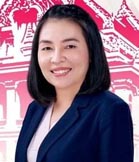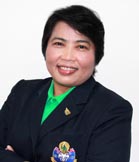Committee for Higher Education
.jpg) |
||||
|
Professor Dr.Bowornsilp Chowchuen |
||||
| Chairperson | ||||
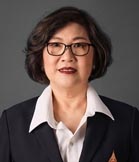 |
|
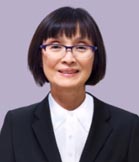 |
||
|
Associate Professor Dr.Nanthana Kotchaseni |
Associate Professor Bundit Thipakorn |
Associate Professor Jantanee Bejrananda |
||
| Committee | Committee | Committee | ||
 |
|
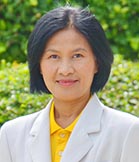 |
||
|
Associate Professor Usanee Kumprakob |
Associate Professor Dr.Sukanya Chaemchoy |
Assistant Professor Chadaporn Vatanavilai |
||
| Committee | Committee | Committee | ||
 |
|
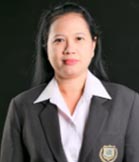 |
||
|
Assistant Professor Dr.Poolsak Koseeyaporn |
Assistant Professor Dr.Chanita Kraiped |
Assistant Professor Dr.Phetcharawalai Thirawanutpong |
||
| Committee | Committee | Committee | ||
.jpg) |
|
.jpg) |
||
| Dr.Nantha Nguantad | Dr.Suchaya Sangcharoon | |||
| Committee | Secretary | |||
Powers and Duties of ONESQA Committees
Royal Decree on the Establishment of the Office for National Education Standards and Quality Assessment (Public Organization) of 2018, Volume 3, Section 14 authorized the appointment of a committee to be named “the ONESQA Executive Committee” that includes:
- Committee Chairperson appointed by the Council of Ministers from qualified expert who is well versed in academic, expertise and proficiency in the fields of management, humanities, social sciences or science and technology,
- Ex-officio Committee composed of 3 members; Committee Chairperson on Basic Education; Committee Chairperson on Vocational Education; and Committee Chairperson on Higher Education, and
- Committee composed of not more than 6 members, appointed by the Council of Ministers from qualified experts who are well recognizable in academic, expertise and proficiency in the fields of management, humanities, social sciences or science and technology and the Director shall be an ex-officio member and secretary to the Executive Committee.
The Executive Committee has the powers and duties as follows:
- To formulate the administrative policy and to approve the work plans of the Office.
- To approve the fiscal financial planning including financial budget, investment plan, and financial planning of the Office.
- To formulate measures for the dissemination of results of assessment of educational quality and standards of assessed educational institutions to relevant agencies and to the public.
- To certify external assessors and to set up the scope of authority and duties, as well as regulations concerning duties of external assessors.
1. administration of the general affairs, organization structure and distribution of functions among the various units,
2. nomination, appointment and dismissal of the Director; monitor performance and evaluate performance of the Director; nomination and appointment of the Acting Director; and delegation of power to their representative,
3. stipulation of position classification, qualifications required for different positions, scale of salaries, wages and other remunerations of officers and employees of the office,
4. formulating Ethics and Code of Conduct for Committees, Directors, officers and employees,
5. selection, assignment, appointment, development, appraisal, dismissal, discipline and disciplinary action, termination of office, complaint and appeal by officers and employees against disciplinary action as well as methods and conditions for employment of employees,
6. management of administration, finance, supplies and property of the Office, including accounting and cancelling of property from the statement of assets and liabilities,
7. provision of benefits for welfare and other interests of officers and employees,
8. appointment and authorize function of Monitoring Committee of the Office,
9. set up the scope of duties for the Monitoring Committee and the Internal Audit Committee,
10.designation of uniforms of the Director, officers and employees, as well as the Office’s logo.
6.To give approval on the determination of fees, maintenance fees, compensation and service fees for the operation of the Office.
7.To take any necessary or subsequent action to attain the objectives of continuity of the operation of the Office.
8.To perform other duties as stipulated in this Royal Decree or as assigned by the Council of Ministers.
Other than the Executive Committee, ONESQA also has 3 more Committees to manage the operation and administration of the Office including the Committee for Development of Quality Assessment Systems for Basic Education, the Committee for Development of Quality Assessment Systems for Vocational Education, and the Committee for Development of Quality Assessment Systems for Higher Education. Each individual Committee has a maximum of 11 members, consisting of the Chair Person and members appointed from qualified experts with knowledge and expertise in the fields of humanities, social sciences or science and technology, or experts with experience in educational management, measurement or evaluation and also assigned the Director of ONESQA to serve as a member and secretary for all the 3 committees. The Committee Members shall hold office for a term of 3 years. After the expiration of the term, the outgoing qualified committee member may be reappointed for not more than 2 consecutive terms.
The Committee for Development of Quality Assessment Systems for Basic Education, Vocational Education and Higher Education have been authorized with the following powers and duties:
- To render academic support to the Executive Committee.
- To develop and improve the systems and methods of external quality assessment and to develop standards and criteria for external quality assessment of different levels of education in accordance with the prescribed policies of the Committees consecutively.
- To oversee the implementation of the Office to ensure recognition of standards and quality assessment of educational institutions at different levels in accordance with the prescribed policies of the Executive Committee.
- To take any other action as assigned by the Committees.
11587
Reads

